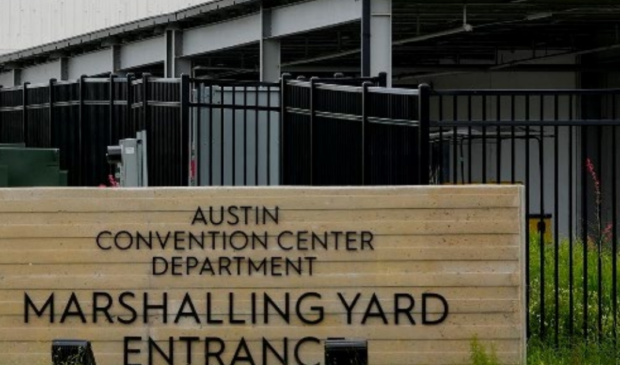Council to see requests for Marshalling Yard extension, ECHO’s $350M homelessness plan
Thursday, December 5, 2024 by
Chad Swiatecki The Public Health Committee has recommended adopting the Ending Community Homelessness Coalition (ECHO) long-term forecast for addressing homelessness, signaling a commitment to spend an estimated $350 million over the next decade to fill gaps in the city’s homelessness response system.
The recommendation asks City Council to direct the city manager to seek out additional funding for costs related to the ECHO forecast and to prioritize sustainable investments in the homelessness response system starting with next year’s budget. Immediate goals include ensuring the continuation of programs initially supported by federal ARPA funding, enhancing shelter placement rates and building permanent supportive housing.
ECHO’s forecast, which was presented to the committee last month, projects total homelessness system costs to reach around $24.4 million for 550 emergency shelter units, $104.5 million for 2,355 rapid rehousing units and $217.4 million for 4,175 permanent supportive units.
“We really want to ensure that we make our homelessness response system one of our top budget priorities going into next fiscal year,” Council Member Vanessa Fuentes said. “It also directs the city manager to identify policy and administrative changes necessary to complete our (permanent supportive housing) units.”
Council Member Ryan Alter emphasized the need to examine spending on the remaining ARPA funds to make sure they are used as effectively as possible. He also returned to a frequent concern of needing to plan now for permanent supportive housing units that will be needed four years in the future.
“We are going to need a large amount of capital and a large amount of ongoing funding for those services,” he said. “These projects take a long time. They’re not something that in 2027 we can say we want to start the process to get units in 2028. We need to start the process today if we’re going to be building the over 600 units in some of these years that that is called for in this plan.”
The committee also received an update on the Marshalling Yard Emergency Shelter, which has been considered for closure as staff members look for funds to keep the facility open while also searching for alternatives to meet the needs of the 300 beds available on-site.
Homeless strategy officer David Gray told the committee the facility has nearly doubled its rate of positive housing exits, increasing the rate of placements into permanent supportive housing units from 15 percent to almost 30 percent since opening. Gray said the facility has served more than 1,000 clients, with nearly 200 placed successfully in housing.
“What this demonstrates is that we are doing a better job at getting people housed. We’re doing a better job at providing quality services and keeping people stably in the Marshalling Yard until we’re able to get them rehoused. And we’ve been able to double our positive success rate since we’ve opened,” Gray said.
A resolution extending the Marshalling Yard’s agreement through September 2025 will be considered at the Dec. 12 City Council meeting. The extension, funded by $6.75 million from the city’s General Operating Fund and some ARPA dollars, aims to maintain emergency shelter services while the city seeks a permanent replacement facility or adds capacity to existing shelter locations.
Gray and other staff are also working to reconfigure the shelter resources at the Marshalling Yard to allow the site to accommodate its intended use as the holding area for supplies needed for the forthcoming demolition and reconstruction of the Austin Convention Center.
Fuentes said finding alternative emergency shelter options should be a priority for Gray and other city staff.
“Prior to Council consideration, I want some more detail on where that funding is coming from,” she said. “Obviously a million dollars a month going towards the Marshalling Yard is not a sustainable amount for us. We certainly want to continue investments in emergency shelter, but we’d be looking to prioritize that relocation.”
The Austin Monitor’s work is made possible by donations from the community. Though our reporting covers donors from time to time, we are careful to keep business and editorial efforts separate while maintaining transparency. A complete list of donors is available here, and our code of ethics is explained here.
You're a community leader
And we’re honored you look to us for serious, in-depth news. You know a strong community needs local and dedicated watchdog reporting. We’re here for you and that won’t change. Now will you take the powerful next step and support our nonprofit news organization?




